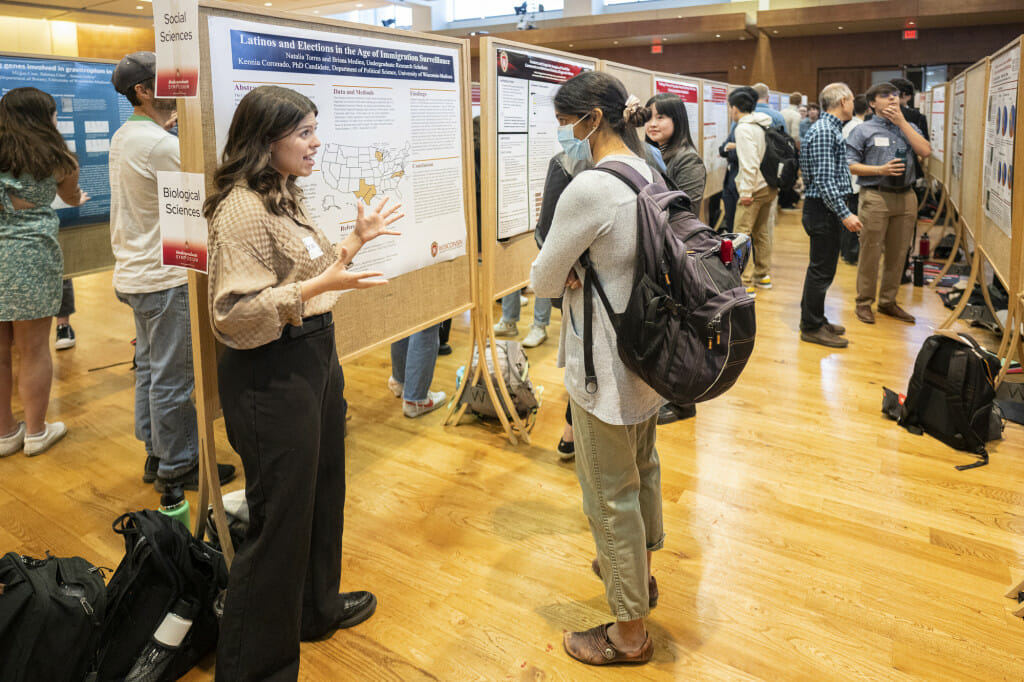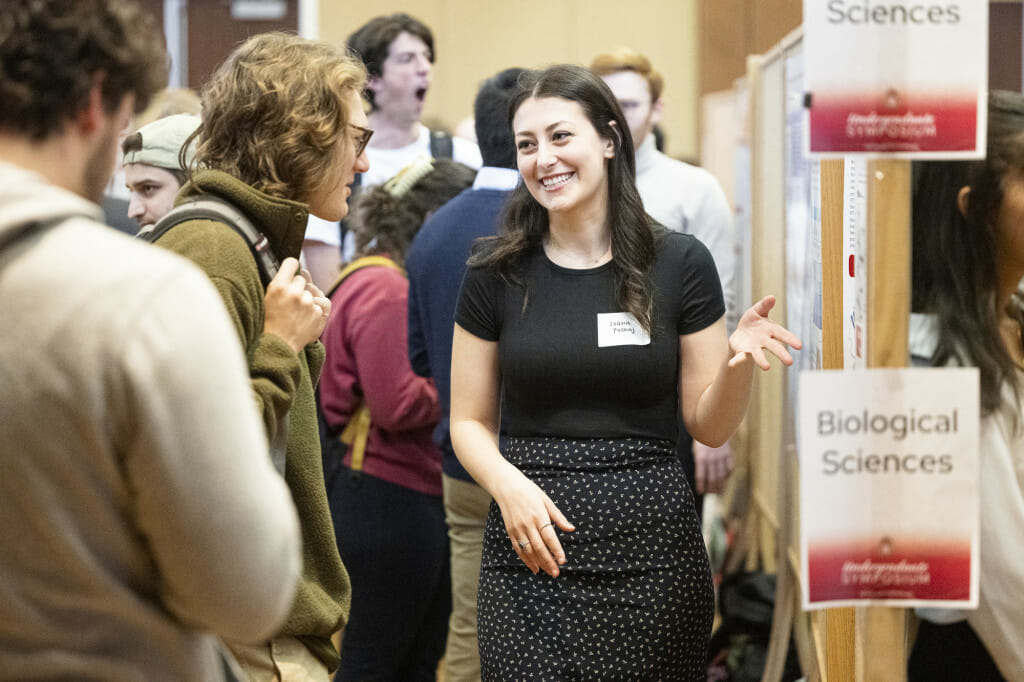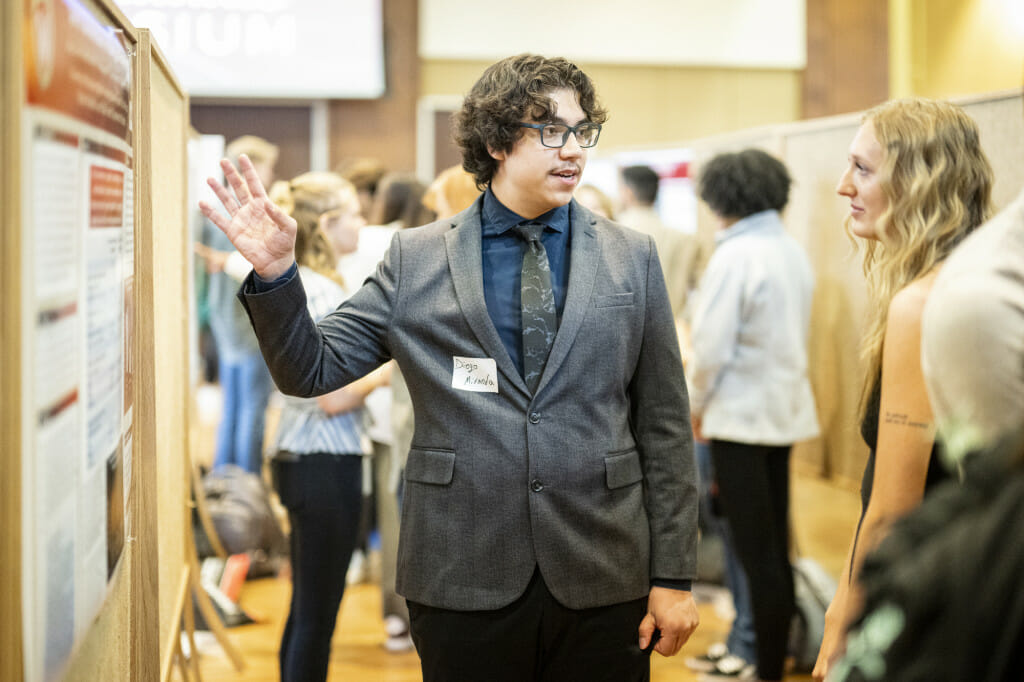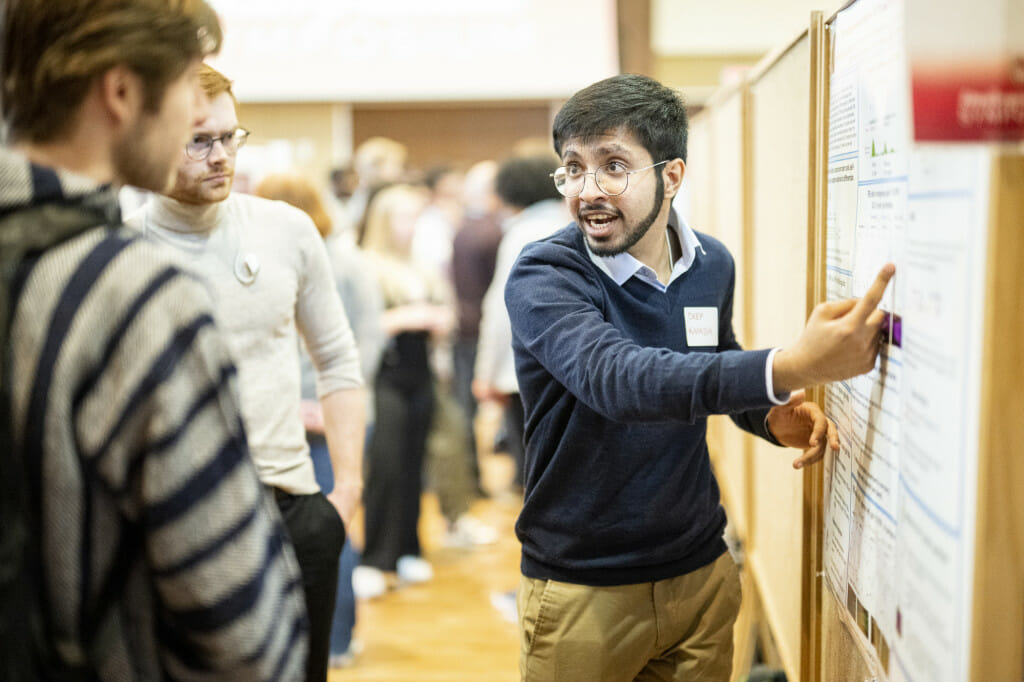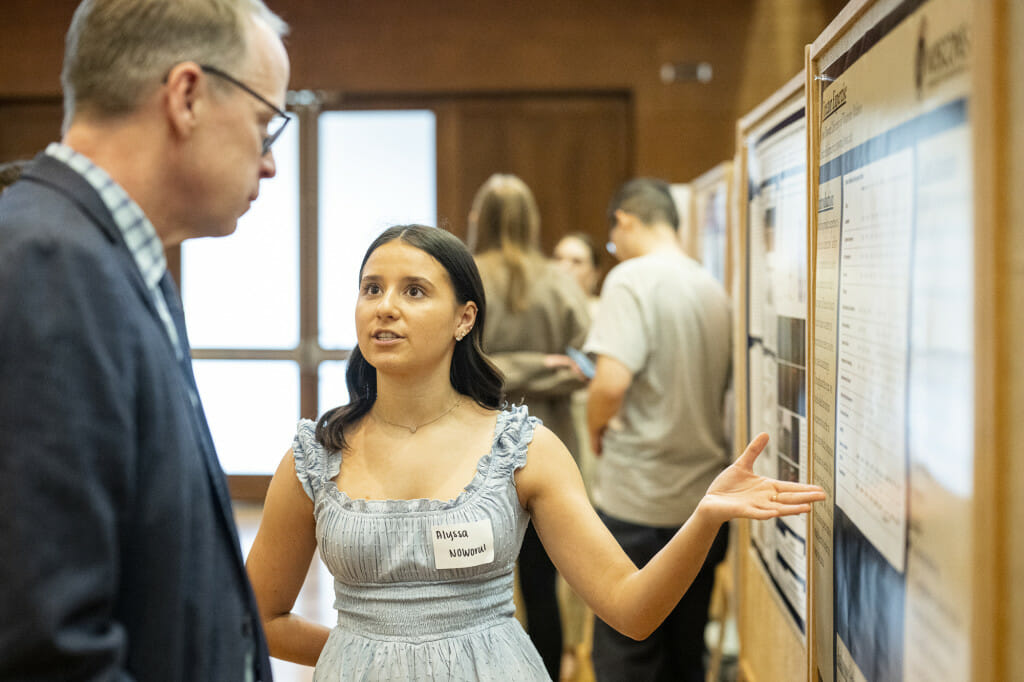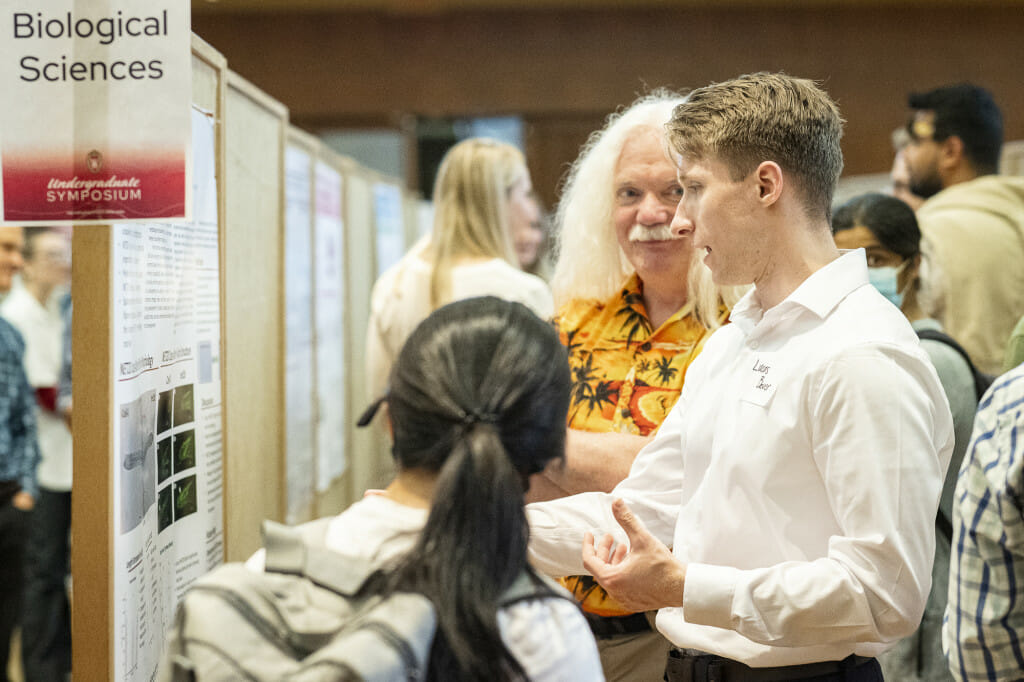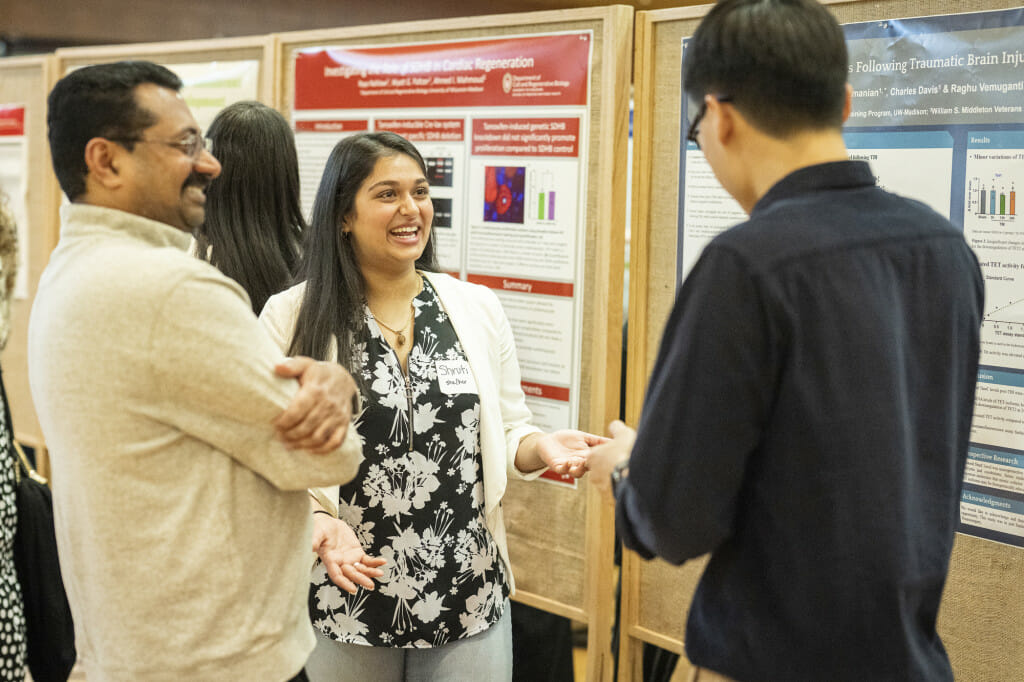Undergraduates present research on everything from mental health to ticks to stress
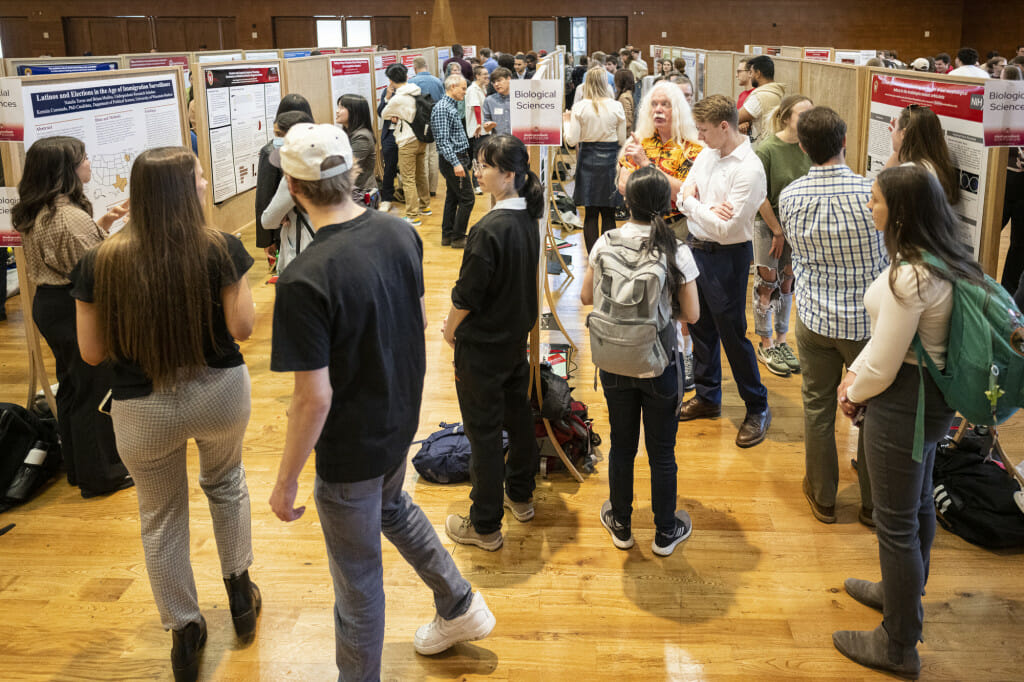
Undergraduates present their poster projects during the 25th annual Undergraduate Symposium held at Union South. Photo: Bryce Richter
At the 25th annual Undergraduate Symposium held at Union South on April 28, UW–Madison students showcased their research from all areas of study.
“Presenting at the symposium made everything come together for me, and I felt a lot more confident in discussing what I did,” said Ashton Jenks, who presented last year about Epigraphic transitions with the Palmyrene Aramaic Inscriptions project, and who was a moderator at this year’s symposium. “Sometimes you don’t fully realize how much of an expert you have become until you talk to others outside your little research bubble.”
A sampling of the students and their projects:
Siena Laws and Elizabeth Liu: Promoting mental health at East High
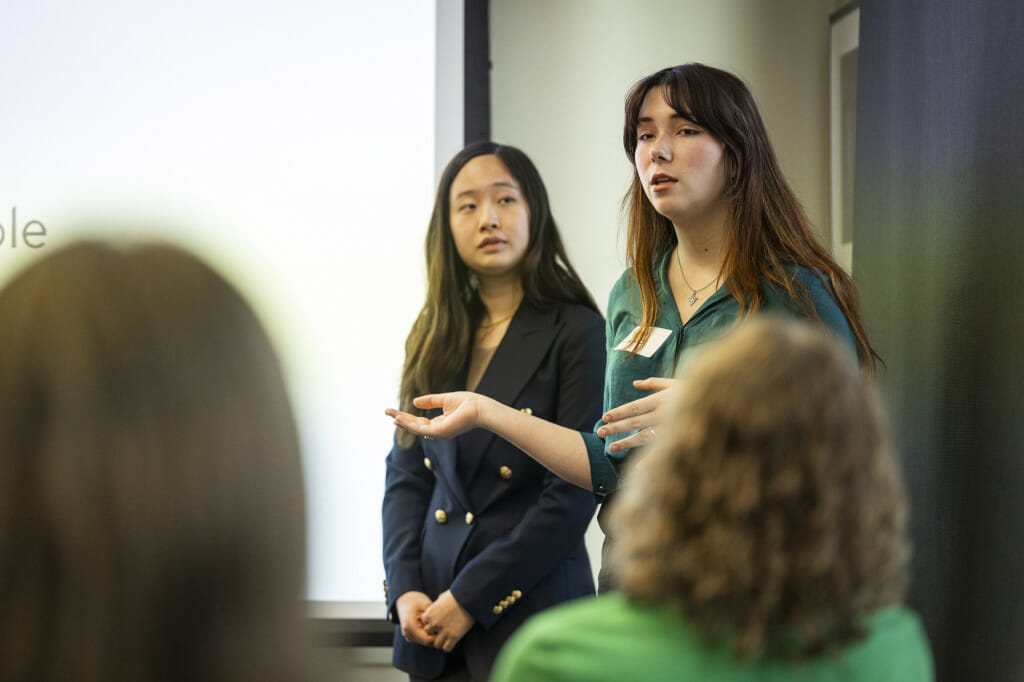
Undergraduates Siena Laws (right) and Elizabeth Liu (left) present their project. Photo: Bryce Richter
Siena Laws and Elizabeth Liu presented the Peer Share Mental Health project, which promoted mental health knowledge and community at East High School through the power of peer mentorship. UW–Madison undergraduates led workshops to teach students about psychology and mental illness and to train wellness ambassadors. The project was funded by the Wisconsin Idea Fellowship and the Michael Thornton and Nora Medina Social Innovation Award.
“I have been passionate about mental health education as long as I can remember and want to dedicate my life to supporting young people as they develop the skills and knowledge they need to best support themselves and others with their mental well-being,” said Laws, who hopes to attend graduate school for counseling psychology and work toward making mental health knowledge more accessible to everyone.
Magic Vang: Hmong and tick-borne diseases
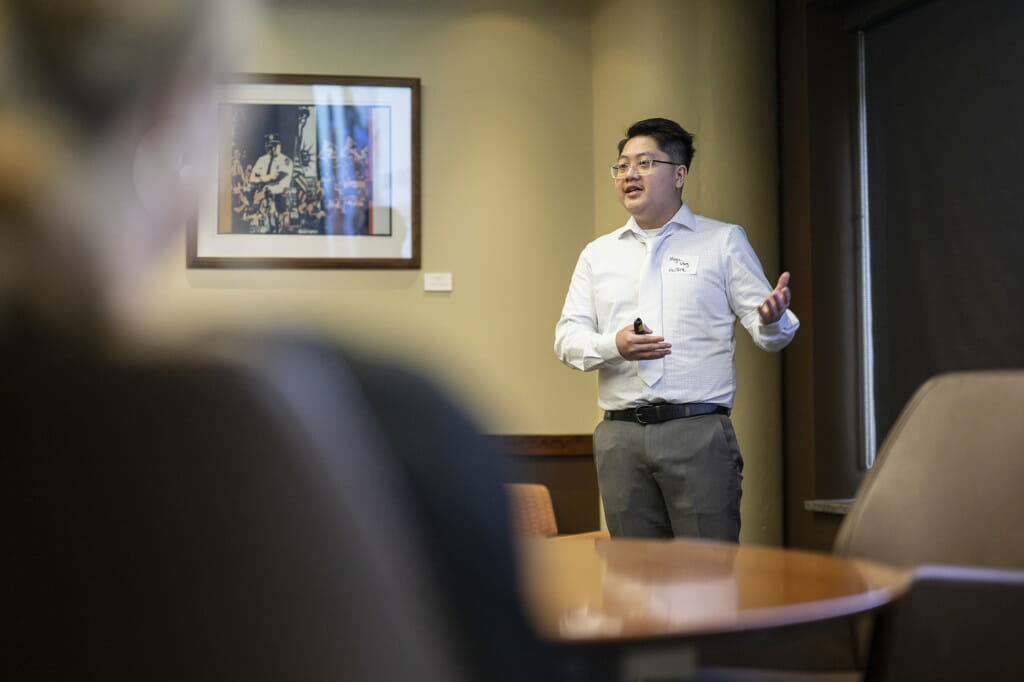
Magic Vang presents his research at Union South. Photo: Bryce Richter
Magic Vang presented a research study focused on Hmong knowledge, attitudes, and behaviors towards ticks and tick-borne diseases, which found that there is a significant difference compared with the white population.
“Hmong are heavily underrepresented in STEM and there is little information or data to see if Hmong are being properly educated on tick-borne diseases,” he said.
As part of the project, he’ll help create and disseminate educational and outreach resources to the Hmong population, with the help of Hmong organizations, he said.
Hanna Malek Noughani: Obesity and dementia connection
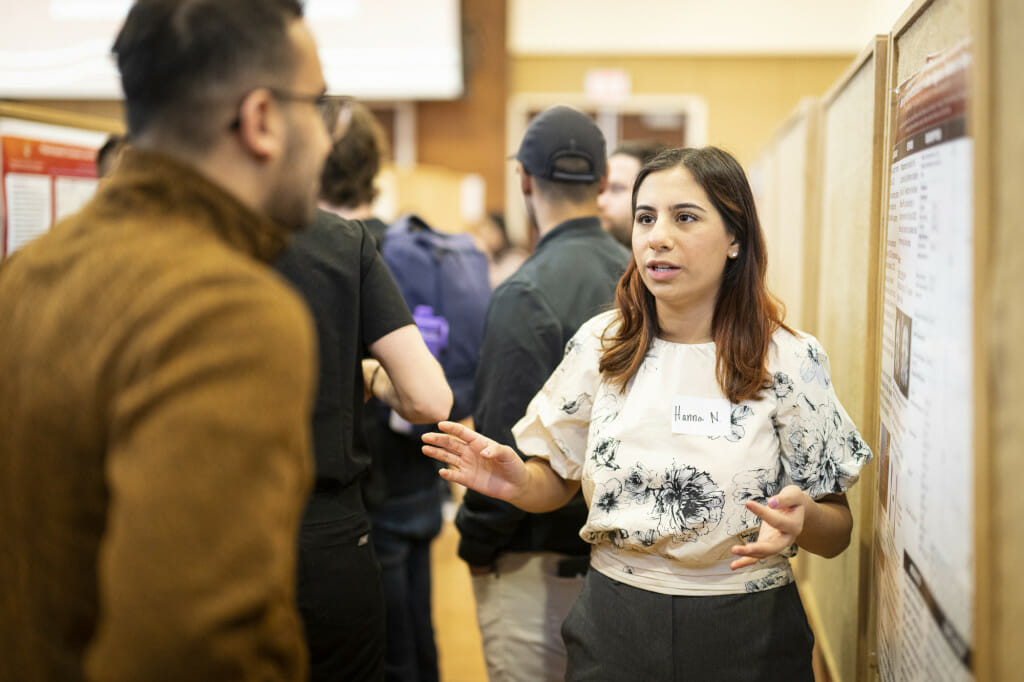
Undergraduate Hanna Noughani talks with a visitor about her project. Photo: Bryce Richter
Hanna Malek Noughani presented on her research about the relationship between obesity and the risk for dementia. “I hope my project will inspire further research to find why obesity in mid-life can change our brain microstructure prior to any clinical symptoms of cognitive impairment,” she said.
“I’m excited to learn about what other students are doing and seeing if there are any non-conventional connections I can make between what someone else is researching and what I’m researching,” said Noughani, who hopes to pursue graduate studies in oboe performance, and then attend medical school.
Ezra Jarzembowski: Effects of chronic stress
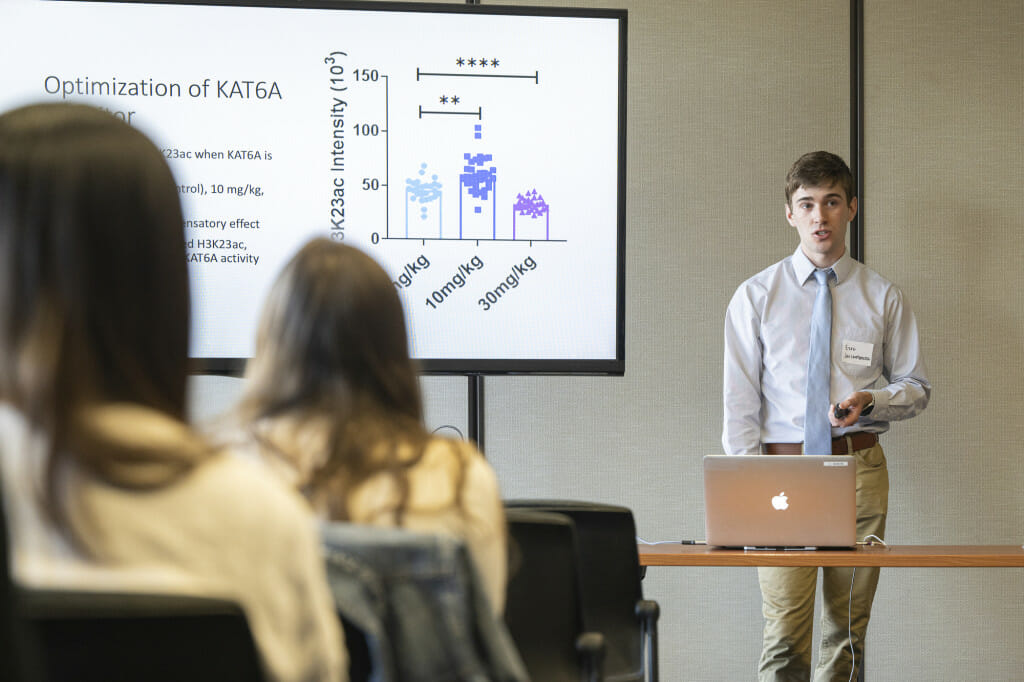
Undergraduate Ezra Jarzembowski presents his research. Photo: Bryce Richter
Ezra Jarzembowski presented a project on how neural circuits adapt to the environment through changes in gene expression. “Specifically, we are investigating how chronic stress effects gene expression in the brain,” he said. “It is already well known that chronic stress causes deficits in behavior but we are investigating the molecular mechanisms behind these stress-induced deficits.”
Presenting at the symposium feels like a celebration of all the hard work, said Jarzembowski, who hopes to go to medical school. “Being able to communicate this work to others outside of our field is a challenge because we have to take a new perspective on our work to explain it to those who don’t carry the same assumptions we do,” he said.
Tags: recent sightings, research

